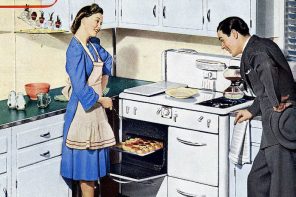In contrast to earlier times, our state now recognizes that an individual’s capacity to establish a loving and long-term committed relationship with another person and responsibly to care for and raise children does not depend upon the individual’s sexual orientation, and, more generally, that an individual’s sexual orientation—like a person’s race or gender—does not constitute a legitimate basis upon which to deny or withhold legal rights. —California Supreme Court in a 4-3 ruling on May 15, 2008
I have learned as both a pastor and a member belonging to several minority groups—African-American, women and lesbian—that a popular opinion on an issue does not always reflect the right choice. Too often the right choice and the moral high ground on an issue derive from a small struggling group trying to be both seen and heard over the cacophony of dissenting voices and opposing votes. And it is within this group that we see democracy’s tenacity; where those relegated to the fringes of society can, with a resolute effort to change hearts and policy, begin to sample what those in society take for granted as their inalienable right.
Last week we saw democracy work. In a 4-to-3 decision, the California Supreme Court ruled that a “separate and unequal” system of domestic partnership for same-sex couples is blatantly discriminatory and unconstitutional. But the knot is not completely tied.
A conservative backlash in California has already begun with opponents gathering signatures to place on the November ballot, defining marriage as between a man and a woman. And California’s conservatives won’t be alone, with Florida set to vote on a Constitutional amendment in November and Republican candidate John McCain’s home state of Arizona considering the same. Twenty-seven states already have Constitutional amendments prohibiting same-sex marriage.
If heterosexual marriage were so sacred, we’d expect conservatives to be just as noisy about television shows like The Bachelor, or a host of other programs that cavalierly join people in matrimony for a bump in the Nielsen ratings. But we don’t. Cultural conservatives are more likely to launch boycotts against networks for a single gay kiss than season’s worth of heterosexual triviality.
In the Court’s need to deal fairly with same-sex couples given the widespread public sentiment against same-sex marriage did it, as Tony Perkins of Family Research Council argued, ignore the will of the people?
On the day of the decision Perkins sent out his FRC Action Update news alert titled “California Marriage Law: 4,618,673 to Four” stating:
“After a brief period of judicial restraint, California voters watched in horror this afternoon as judicial activism returned with a vengeance in one of the most egregious rulings in American jurisprudence. It took just four activist judges to overturn the historical definition of marriage, not to mention the vote of more than four and a half million Californians, as the state supreme court issued a much-anticipated ruling on the question of same-sex ‘marriage.’”
But the California Court’s decision can be read two ways.
The Court upheld the democratic process by offering same-sex couples marriage and not “marriage-lite” with civil unions. Or the Court overstepped its authority, imposing its will on an issue the country, let alone the state of California, is not ready for.
We were told that if the state of Massachusetts legalized such an ungodly act as same-sex marriage not only would it bring about the death of the institution of marriage, but it would also bring about the demise of civilization.
Many also said the righteous hand of God would be in that defining moment to stop same-sex marriage with ugly protests, with town clerks engaging in civil disobedience by refusing to issue licenses, and with just those last minute unavoidable and inexplicable legal snafus.
But none of that happened. And the sky didn’t fall either. In fact, the ugly rhetoric against same-sex marriage is all too familiar to this country’s legal battle against miscegenation, after which the nation went on without much incident from God or man.
With purportedly more than 1.2 million signatures gathered to place on the November ballot, more than twice the requisite number needed to put a constitutional amendment on the 2008 election ballot, is the democratic process now thwarted?
To put lesbian, gay, bisexual and transgender people’s equal rights on the ballot for a popular vote is both wrong-hearted and wrong-headed. If I had had to wait for slave holders to free my ancestors by ballot we all wouldn’t be living in the America we know today.
The proponents of the ballot question are a well-financed, and well organized voting constituency presenting themselves not as a group of people advocating a moral right but as a group possessing power and money. Marriage for them is defined solely as between a man and a woman, and any variation of their gender prescription within this institution is vehemently beaten down. They use the ballot not to promote justice but to promulgate their bigoted agenda, and democracy works only when their side wins.
To me, democracy is an ongoing process where people are part of a participatory government working to dismantle all existing discriminatory laws that truncate their full participation in society. The work of democracy is rooted in justice and social change allowing us to see, along this troubling human time line, those faces and to hear those voices in society of the damned, the disinherited, the disrespected, and the dispossessed.
Democracy can only begin to work when those relegated to the fringes of society can begin to sample what those in society take for granted as their inalienable right. And sometimes for that to happen people, like our Massachusetts lawmakers and now California’s, have to step in to make the democratic process work for us all.
While LGBTQ families in California have not seen the last in this ballot battle, they are getting, at least for now, a sample of what we LGBTQ families in Massachusetts can take for granted: democracy.



